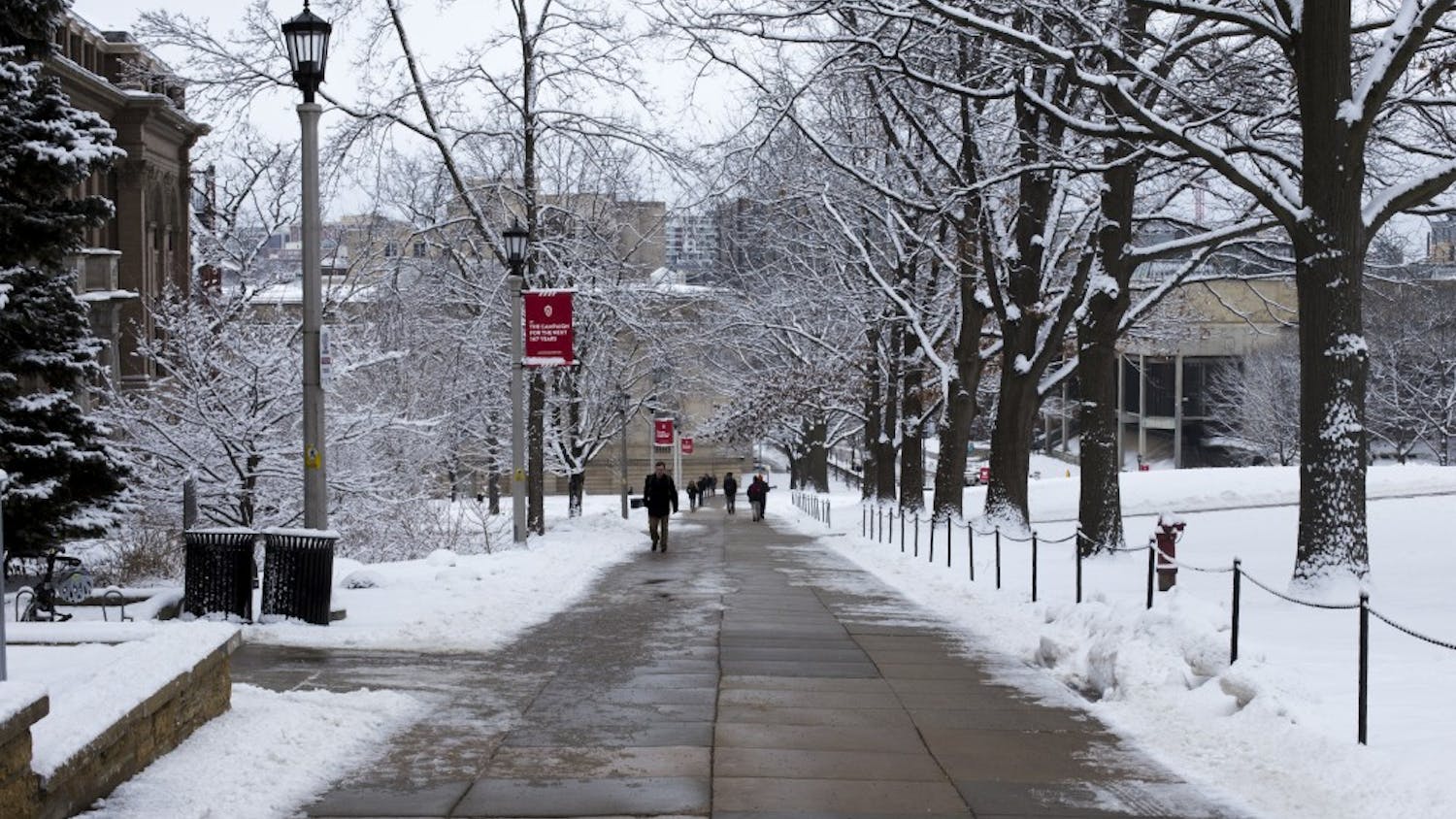The newly formed Indigenous Student Center Coalition (ISCC) — a collaboration of six different indigenous organizations within the Indigenous Student Center (ISC) — planned a variety of programs and events for Native November, a celebration of Native American History Month.
This year’s theme for Native November is “Beyond an Acknowledgement,” a reference to the University of Wisconsin-Madison’s land acknowledgement statement that recognizes UW-Madison as ancestral Ho-Chunk land.
“I think we're all aware that the university is pretty adamant about doing the Ho-Chunk land acknowledgement,” said Morgan Spohn, president of the Indigenous Law Student Association (ILSA). “But I think we wanted to call upon the university to act rather than just making acknowledgments all the time.”
Native November began with a Kickoff Feast in early November and will end with the Native November Keynote Speaker on Nov. 29. Indigenous organizations such as ILSA, Wunk Sheek and MadTown Singers planned events throughout the month. MadTown Singers, the indigenous drum group on campus, plans to host a Dance Social on Nov. 22 on top of Bascom Hill.
“The purpose of Native November is to uplift our indigenous student voices, and to really amplify their concerns, their issues and their communities,“ said Noreen Siddiqui, the Assistant Director of Cultural Centers at the Multicultural Student Center. “Too often this community is seen as a historical community, as something in the past, that they don't really exist anymore, and this is a way for us to help support our students by supporting [indigenous students] as they continue building community.”
ILSA and UW Law School hosted a flag ceremony in early November where they raised the flags of all 11 federally recognized nations in the state of Wisconsin and the Brothertown tribe of Wisconsin, which is not currently federally recognized.
“I thought it was very impactful to have every single tribe send a representative or at least send their flag to be a part of the flag ceremony because, ultimately, the goal of the ceremony itself was to properly receive the flags from the tribes,” Spohn said.
The Winnebago Tribe of Nebraska, a formerly displayed tribe from Wisconsin, was also recognized despite currently residing in Nebraska. Spohn stressed the importance of including the Nation due to their forced displacement during the Black Hawk War of 1832.
“To invite the Winnebago Nation up and have them essentially have this homecoming back since 1832 when Madison, or what this area was, was ceded to the U.S. government, it was very important for us to include them,” Spohn said.
The 13 flags will be part of a future permanent display of the flags in the UW Law School set to open in March 2023.
“Law affects Native people on an everyday basis, so we thought the UW Law School would be the perfect place to essentially be the leader on the permanent flag installation,” Spohn said.
Another notable event was Wunk Sheek’s corn braiding workshop on Nov. 7. The event seeked to foster community among indigenous students and showcase diversity within the indigenous community.
“The purpose of indigenous workshops is to just bring native arts and crafts to campus and also tie in the cultural and traditional aspects of the significance to a certain tribe,” said Yelih Rodriguez, the president of Wunk Sheek. “It's also to show the diversity amongst different tribes — we're very different, and the only similarities we have is genocide and oppression.”
The final event of the month, the keynote speaker series on Nov. 29, is also hosted by Wunk Sheek. The organization plans to Zoom in two Native American leaders and will host the event in person at the Multicultural Student Center at 5 p.m. Wunk Sheek and the ISCC plan to announce the speakers soon, as they are working to finalize financing for the event.
Both Sphon and Rodriguez stressed the importance of continuing to acknowledge and prioritize indigenous perspectives and events outside of the month of November.
“I think the university is getting more and more engaged with tribal nations — it's [just] keeping the momentum from November going all year is really crucial,” Spohn said.
The ISC building will not be demolished as a part of the Levy Hall construction in 2023. The 2015 campus master plan shows the removal of the ISC building, but no final decisions have been made, according to Jenny Bernhardt, UW-Madison communications director for the vice chancellor for student affairs.
“It's been very frustrating, especially when we seem to get no type of support from the university. I know my leadership team has been wanting to kind of figure out what we can do to get a new space since they are taking ours away,” Rodriguez said. “Just kind of bringing the acknowledgment of why we need a space. I feel like it goes back to the theme of more than [a land] acknowledgment.”
Editor's note: This story was updated on December 6 at 6:20 p.m. to reflect the ISC building's current demolition plans.
Noe Goldhaber is the editor-in-chief for The Daily Cardinal. She previously served as college news editor and copy chief. She is a Statistics and Journalism major and lead coverage on the 2024 pro-Palestine encampment and specialized in campus labor, student housing, free speech and campus administration. She has done data analysis and visualization for the Cardinal on a number of stories, and will intern with Wisconsin Watch this summer. Follow her on Twitter at @noegoldhaber.






